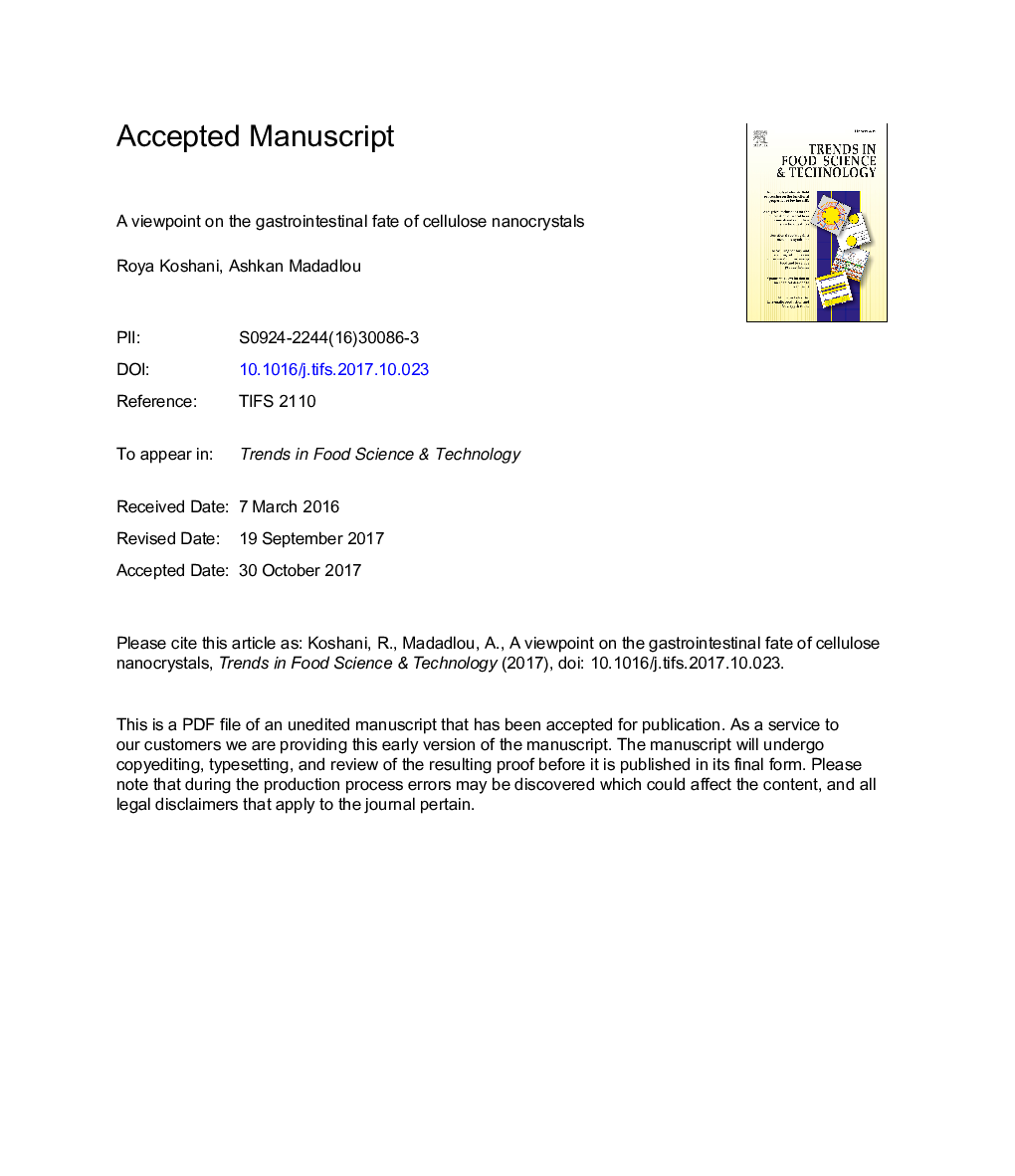| Article ID | Journal | Published Year | Pages | File Type |
|---|---|---|---|---|
| 8428727 | Trends in Food Science & Technology | 2018 | 25 Pages |
Abstract
Bacterial cellulose shows good biocompatibility and hemocompatibility. CNC oxidation provides biologically beneficial impacts; for instance, the TEMPO- and periodate-oxidized CNCs have been shown to regulate some blood metabolic variables and improve the degradability in simulated human blood plasma, respectively. Spherical and carboxyl-bearing cellulose nanoparticles can be isolated through ammonium persulfate digestion. The sphericity of particles results in faster cellular uptake. Negatively-charged CNCs are non-mucoadhesive and thus upon ingestion can penetrate into the buccal and intestinal mucosa. One may augment the absorption of CNCs by targeted receptor-mediated endocytosis. It was postulated that sodium bicarbonate secretion into the duodenum can alter CNCs surface chemistry and influence CNC interaction with gut microbiota.
Related Topics
Life Sciences
Agricultural and Biological Sciences
Food Science
Authors
Roya Koshani, Ashkan Madadlou,
